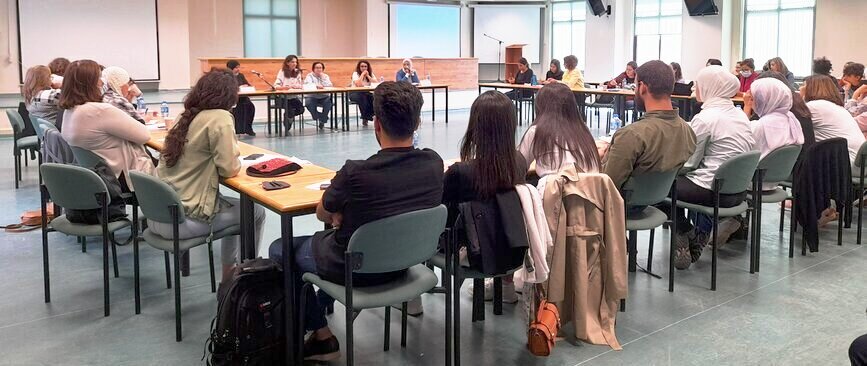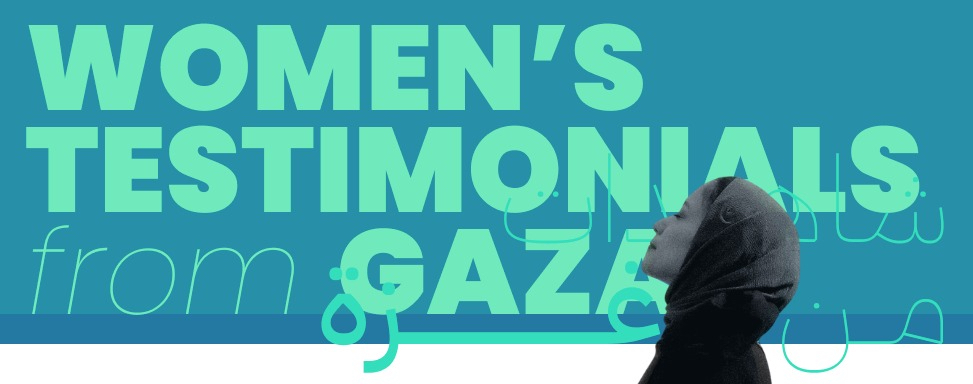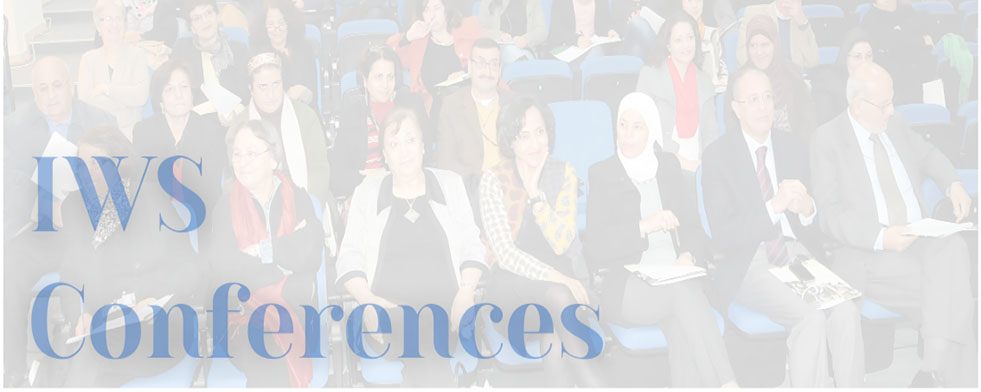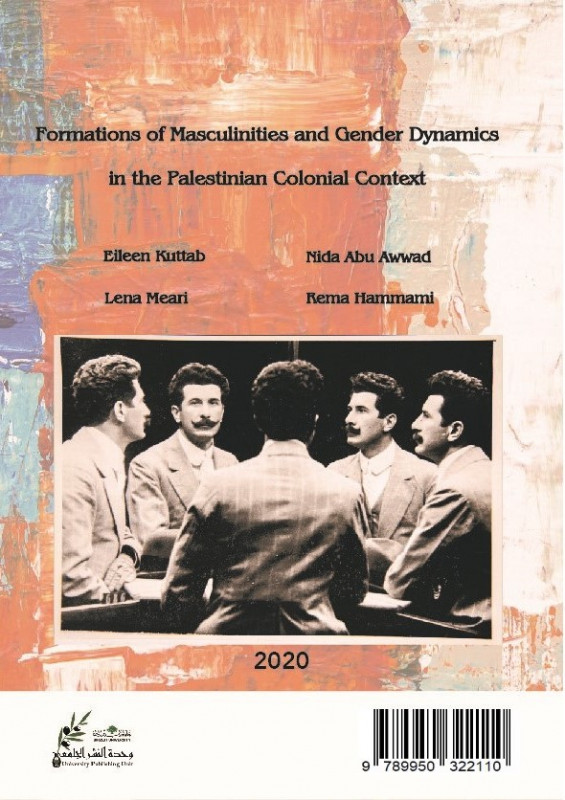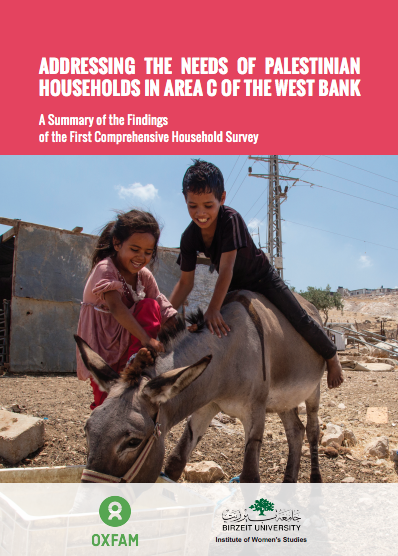On 23 October 2021, the Institute of Women's Studies and the Women's Committee of the University's Union of Instructors and Employees co-organized with "Haliqat Al-Istiqbal" a dialogue on the realities of political imprisonment from the perspective and experience of Palestinian women and their families, including testimonies from Palestinian lawyers active in prisoner issues.
Dr. Rania Jawad, Director of the Institute of Women's Studies, opened the event by welcoming members of Haliqat Al-Istiqbal, describing their feminist initiative as "re-signifying Palestine's cultural past socially and politically" and emphasizing "the Institute's vision based on ongoing learning and linking between knowledge and practice." Dr. Jawad noted that the event also reflected the experience of female students and employees of Birzeit University (who have been imprisoned) and the Institute's intellectual, research, and political interests, bringing together "generations of Palestinian female prisoners and activists, transcending colonial divisions."
On behalf of the Women's Committee of the University's Union of Instructors and Employees, Dr. Lena Meari, a faculty member in the Institute of Women's Studies and the Department of Social and Behvorial Sciences, spoke on how "the Zionist colonizer has used imprisonment as a tool to erase and isolate the fighting vanguard of our people since the moment of its colonization of Palestine" and that "the policy of mass detention intensified since the occupation of the rest of Palestine in 1967. Since then," she said, "nearly one million Palestinian men and women have been arrested and held captive." Dr. Meari continued that "while many aspects are shared in experiences of imprisonment, the experiences of Palestinian women who have been imprisoned have their own particularity, which is the focus of the discussion today. The point is not to separate and isolate women's experiences, but to address the multiple dimensions of political prison experience in an effort to gain a more integrated picture that can only be realized by looking at all its components in their multiplicity and specificity." Meari concluded by stressing the importance of the cooperation between the Institute of Women's Studies and the Women's Committee of the University's Union of Instructors and Employees and Haliqat Al-Istiqbal. This cooperation "reflects our overcoming of colonial divisions, the weakness of which was revealed by the May uprising that declared our people are one and that the colonial geography, no matter how divided we are, will not be able to divide the sons and daughters of our people nor break their awareness of one Palestine."
Aya Zenati, founder of Haliqat Istiqbal, said that their project was one for all Palestinian women to "revive a custom of pre-1948 Palestinian women" who would meet weekly and monthly "to create their own space." They revived this tradition in 2017 by undertaking "feminist political tours in Palestinian cities and villages to document the Palestinian narrative from the perspective of women and to promote modes of communication among them."
The event was divided into two sessions. Speakers in the first session "The Legal and Mass Dimension of the Palestinian Prison Experience," chaired by Dr. Islah Jad, faculty member in the Institute of Women's Studies and the Department of Cultural Studies, included Janan Abdo (an activist lawyer in prisoners’ issues and the wife of a released prisoner) and Widad Barghouti (a Lecturer at Birzeit University, a released prisoner, and the mother of a current prisoner). The General Director of the Addameer Prisoner Support and Human Rights Association Sahar Francis apologized for not being able to participate due to her need to investigate the reasons and consequences of the recent Israeli classification of six Palestinian civil institutions, including Addameer, as "terrorist" institutions.
Participants in the second session "The Prisoner Lived Experience from the Perspective of Palestinian Female Prisoners and their Families," chaired by Rula Abu Duho, faculty member in the Institute of Women's Studies, included Layan Kayed (a released prisoner and a graduate of Birzeit University) and Salam Abu Sharar (a released prisoner and an MA student at Birzeit University) who each spoke about various aspects of their experiences during imprisonment revealing both suffering and challenges. Sherine Abu Fanouna (daughter of the prisoner Shatha Odeh) gave details on what the families of prisoners face, and Latifa Abu Hamid (the mother of five prisoners) talked about her experience as a mother of prisoners who had been sentenced to life, the oldest who is suffering from serious health conditions.
The event concluded with a modest tribute offered to the released female prisoners, to the mothers and families of the prisoners, and to the lawyers.
To view the event, you can visit the following link:
https://www.youtube.com/watch?v=Lf-s3ehS2VM

